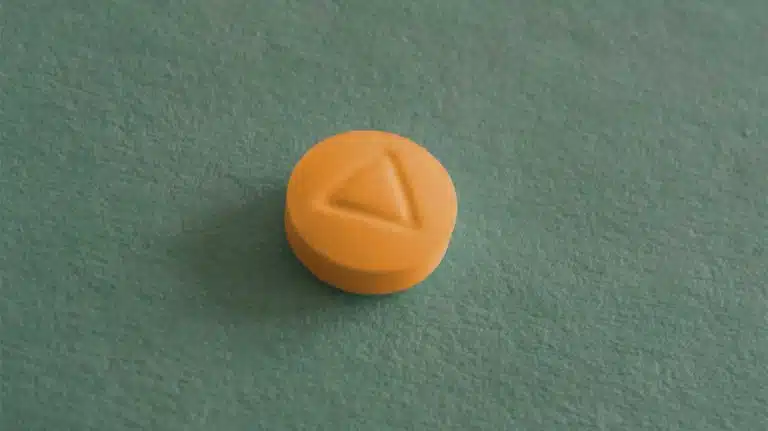Ecstasy (Molly/MDMA) Withdrawal | Symptoms, Timeline, & Detox
- Side Effects Of Ecstasy Use
- Ecstasy Withdrawal Symptoms
- Ecstasy Withdrawal Timeline
- MDMA Detox & Treatment

Ecstasy, also commonly referred to as molly or MDMA, is an illegal drug that alters mood and perception. This synthetic drug provides enhanced sensory experiences. It is a hallucinogen used as a party drug at raves, nightclubs, and other gatherings.
3,4-methylenedioxymethamphetamine (MDMA) causes distortions in time, feelings of increased pleasure, and emotional warmth. This is because dopamine and serotonin in the brain are released, causing increased energy and sexual arousal.
MDMA usually comes in the form of a tablet or powder. The powder must be mixed with a liquid to be taken orally. Otherwise, MDMA can be snorted in only powder form.
Because this drug has a wide range of mental and physical side effects, withdrawal symptoms can be quite severe once one develops physical dependence.
Side Effects Of Ecstasy Use
In general, those who take ecstasy may experience symptoms such as:
- chills
- sweating
- nausea
- teeth clenching
- blurred vision
To some, these symptoms are barely an inconvenience compared to the “high” ecstasy brings. While these MDMA side effects might not seem too bad, more serious acute symptoms can occur including:
- overdose
- panic attacks
- high blood pressure
- seizures
- fluctuations with heart rate
- loss of consciousness
- heart damage
In addition to this, an ecstasy comedown or withdrawal can cause a number of problems.
Ecstasy Withdrawal Symptoms
Some of the withdrawal symptoms associated with ecstasy include:
- memory problems
- decreased appetite
- anxiety
- sleep problems
- difficulty paying attention
- depression
- irritability
- decreased interest in sex
- aggression
If you or a loved one are suffering from MDMA withdrawal symptoms, it’s imperative that you seek treatment options as soon as possible.
Ecstasy Withdrawal Timeline
For those who use MDMA moderately, withdrawal symptoms begin to appear during the week after you’ve taken your last dose. They are known to last for up to 10 days.
Symptoms can be moderate to severe, depending on a number of factors such as:
- how often the drug was taken
- the manner in which the drug was consumed
- the quantity of the drug that was taken
- if the MDMA was mixed with other drugs
Ecstasy is a drug that can easily cause problems due to the fact that it can contain additives such as ketamine, methamphetamine, and even bath salts. Sometimes those taking the drug are unaware of the other substances involved.
MDMA Detox & Treatment
Whether you’re struggling with MDMA withdrawal or other substance abuse issues, our addiction treatment centers offer cognitive behavioral therapy, medical detox programs, and other treatment services.
We understand that each situation is unique and requires the utmost care. We develop individualized treatment plans to ensure you receive the care that works best for you.
We have several treatment programs including inpatient and outpatient treatment. We can help treat co-occurring mental health disorders as well.
If you or a loved one struggles with drug use, reach out to one of our healthcare professionals today.
Written by Ark Behavioral Health Editorial Team
©2024 Ark National Holdings, LLC. | All Rights Reserved.
This page does not provide medical advice.
National Institute on Drug Abuse - How are MDMA Use Disorders Treated?
National Institute on Drug Abuse - Is MDMA Addictive?
National Institute on Drug Abuse - What are MDMA’s Effects on the Brain?
National Institute on Drug Abuse - What are the Effects of MDMA?
National Institute on Drug Abuse - What is MDMA?

Questions About Treatment?
Ark Behavioral Health offers 100% confidential substance abuse assessment and treatment placement tailored to your individual needs. Achieve long-term recovery.
100% confidential. We respect your privacy.
Prefer Texting?
Our friendly support team is here to chat 24/7. Opt out any time.







 Learn More
Learn More








